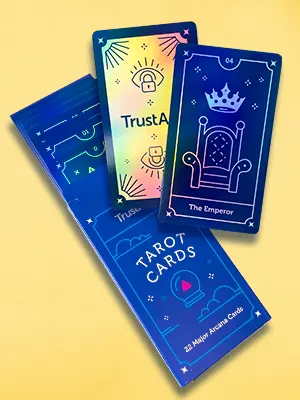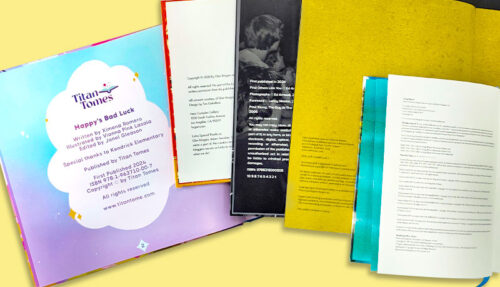We show you - with examples from famous wordsmiths and excellent practical tips - exactly how to find all the time you need to write your book

Photo by Markus Spiske on Unsplash
The question of how to find time to write is good and deserves an excellent answer. As one of the world’s leading book printers, working with self-published authors and independent creatives every day, we’ve heard it all and we understand the problem you face. The good news is that from our conversations and experience with writers all over the world, we also have a pretty good idea of the answer to the age-old question of finding time to get that book written. Let us help you.
If finding writing time matters to you, we guess that you’re aiming at writing professionally, whether to seek agency representation or — like most of our book clients — to go the increasingly popular self-publishing route. Of course, once you’re successful, with a shelf full of bestselling titles to your name, then you’ll have all the time you need, the time you put into the day job right now, because that is how you’ll be earning your living.
But how do you find time to write — and write every day — when you still have to hold down a tiring day job, deal with the domestic routine, cook, shop, clean, spend time with the kids and all the other business of a regular life?
We’re going to answer that. Really. And we’re going to give you our best answer. Before we do, let’s just say that we’re confident, even without knowing you or your circumstances, that you can find time to write. It may not be easy, but we know you can do it. We’ve been working with writers for upwards of a quarter of century now and we’ve gathered a lot of first-hand intelligence! But don’t take our word for it. Listen to the testimony of some famous writers who wrote their first works while tackling hardship and the stress of the daily grind.
How J K Rowling found time to write
Setting aside any recent Twitter spats and other controversies, the fact remains that this lady has become the best-selling author of all time. But she started writing the book that would sky-rocket her career when she was still a struggling single mom, working from pay check to pay check as an office clerk. She didn’t have the luxury of a dedicated place to write — she couldn’t even choose the times of day that she wrote. But she wrote one word after another, even if that was just a sentence or two scribbled furiously in ten minutes she could snatch here and there.
“Whenever Jessica fell asleep in her pushchair, I would dash to the nearest cafe and write like mad. I wrote nearly every evening. Then I had to type the whole thing out myself. Sometimes I actually hated the book, even while I loved it.”
~ J K Rowling
How Christina Baker Kline finds time to write
Christina is a hardworking novelist who talks eloquently on her blog about the difficulties of finding time to write among all the multitude of daily tasks that she can only just manage by multi-tasking like crazy. Still, she did it. And if she can do it, so can you.
“In almost every other aspect of my life, my ability to multitask is a good thing. Doing several things at once is how I’ve learned to juggle my various responsibilities: mother, wife, editor, teacher, volunteer. It’s the only way to keep all the balls in the air. But writing is not about keeping the balls in the air. It’s about letting them drop… You have to stop worrying about the fact that you’re wasting time. Of course, you are. That’s what writers do.”
~ Christina Baker Kline
How Stephen King fund time to write
Love him or loathe him, even his critics admire his gutsy dedication to his craft and the sheer quantity of writing of which he has been capable. Well, now he has a big house and plenty of time. But it wasn’t always like that by any means.
There was a time, as he explains in his book On Writing, when his wife Tabitha was working long shifts in a branch of Dunkin Donuts and he was slaving in a commercial laundry. They had two young children to raise. But he somehow found the time to write short stories, and little by little he made his way.
How to find time to write: the secret revealed
One of the first things to realize is that those writers who made it to a professional level while still dealing with all the daily demands that you’re dealing with had two special qualities in common. They all had a burning desire to write and a determination to succeed.
Also, they turned that desire and determination into an iron-clad discipline. They probably made some sacrifices along the way, too. But to them it was worth it and for them it certainly paid off. If you have the same qualities, there is nothing to stop you from repeating their success.
Writing professionally is hard work. And finding the time to write takes wit, wisdom, discipline and sacrifice. Still interested? Okay, here’s our three-step method for working out how to find time to write around all your current commitments, no matter what they are.
Step One: there is no perfect place
For now, forget the dream of a private place with hours of undisturbed creativity ahead of you. Learn that we do all writing one word at a time. If you can write a single sentence in a stolen moment while you’re waiting in line or hanging outside school to pick up the kids or first thing before you get out of bed, that really counts. Every word counts.
You can write a short novel of 60,000 words in a year if you can manage just 160 words a day. That’s equivalent to the previous three paragraphs of this post. Do you think you could manage that?
We bet you could.
Step Two: prioritize writing over leisure
We heard a writer once telling the story of how he found time to write. He was talking about the writing group he used to attend every Wednesday and Friday evening for two hours. One day he was sitting there listening to the conversation that had turned to the usual topic: how none of them ever could find enough time to write. He experienced a small epiphany. Getting up without saying a word, went home and started writing. He never went back to the writers’ group. Every Wednesday and Friday night he spent writing for two hours instead. He’s now a successful self-published author.
Have you really not got time to write? What about the time you spend watching TV? Turn that into writing time. Or the time you spend chatting on the telephone or checking Facebook? Turn that into writing time. Or your trip to the movies or out to dinner? Stay home and write instead. Make some sacrifices. It’s going to be worth it, isn’t it?
Step Three: if you can speak, you can write
Writing doesn’t have to be written. Christopher Hitchens (like him or loathe him, he was a prolific author) said, “If you can talk, you can write.”
If you have or can get a small voice recorder (they are not expensive) then you can ‘write’ out loud while you do other things. You can dictate your book as you cook, iron, drive, anything. These devices are tiny, portable and slip easily into your pocket. You can use an iPhone or an iPod just the same. Carry it with you everywhere. You can type it up later whenever you get the chance. Or with the latest voice recognition technology, you can just load the audio file into your computer and it’ll turn it into text for you. How easy is that?
You can find time to write
So, there it is. The chips are down. You can find time to write. And if you do; little by little, word by word, you can finish that first book, whether it’s a novel or a memoir, a children’s adventure story, a cookbook, or anything else.
If you follow the advice given here, then you will also have the genuine pleasure of being able to tell people you are a writer. A writer is someone who writes. If you write, even if it’s just those 160 words a day (or even less) then you are a writer. Be proud of that. It’s quite an achievement. Keep the faith, be confident, and write, write, write as if you had the very devil on your heels just whenever you can.
In China, we have a proverb, “There is no greater folly than to do nothing because you can do only a little.” That’s certainly true with finding time to write. Just a few words a day is always progress. And you’ll be surprised by how quickly those pages stack up if you keep going with diligence and patience.
Just one last word. The most important thing when you need to squeeze your writing time in around all your other duties and obligations is not to keep going back and editing. That can come later. The most important thing is just to keep driving forward, plowing ahead and pushing the work on to its conclusion. Get it finished.
When you have those 60,000 words all captured on paper, take a break. Then come back and edit it, finding the time to do that in just the same way you did when you were finding time to write it.
Then, when you’re happy you’ve done the best that you can with it — engage an editor and cover artist. And once you’re ready to print your book, remember us and the encouraging advice we gave you! Here at QinPrinting, we love working with our authors to create beautiful, cost-effective editions of their books. We have over 25 years’ experience in the industry, the latest offset printing technology in our state-of-the-art plant in Shanghai, and a team of enthusiastic experts who can’t wait to help you. Get in touch today to talk through your book printing project or to ask for a no-obligation quote. Let’s talk!










